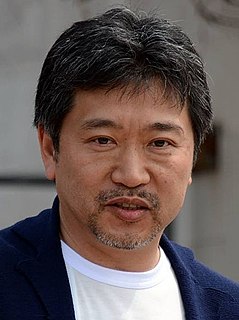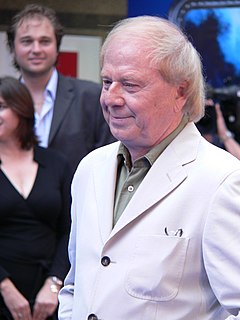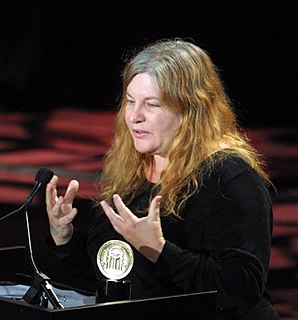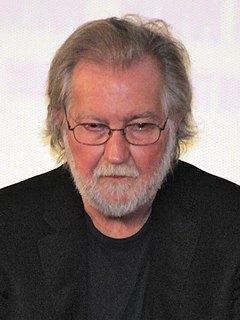A Quote by Hirokazu Koreeda
In the neighborhood around Waseda, there were all these movie theaters, so every morning I left the house and watched movies instead of going to class. The experience of encountering films then is one of my greatest memories. Before that I'd never paid any attention to directors, but there I was taking a crash course in Ozu, Kurosawa, Naruse, Truffaut, Renoir, Fellini. Because I've always been naturally a more introspective person, I was more interested in becoming a screenwriter than a director.
Quote Topics
Always
Any
Around
Attention
Because
Becoming
Been
Before
Class
Course
Crash
Director
Directors
Every
Every Morning
Experience
Films
Going
Greatest
House
Instead
Interested
Introspective
Kurosawa
Left
Memories
More
Morning
Movie
Movie Theater
Movies
Naturally
Neighborhood
Never
Paid
Person
Renoir
Screenwriter
Taking
Than
Theaters
Then
Watched
Were
Related Quotes
I'm definitely a big believer in the notion that a heightened style can get you closer to an authentic human experience than so-called realism on film. There are films I love that have kind of a muted or realistic style, but for me on any given day I have more moments during the course of a day that feel like a Fellini movie than I do a Cassavettes movie.
Theaters are always going to be around, and doing fine. With computers and technology, we're becoming more and more secluded from each other. And the movie theater is one of the last places where we can still gather and experience something together. I don't think the desire for that magic will ever go away.
Though films become more daring sexually, they are probably less sexy than they ever were. There haven't been any convincing love scenes or romances in the movies in a while. (Nobody even seems to neck in theaters any more.) ... when the mechanics and sadism quotients go up, the movie love interest goes dead, and the film just lies there, giving a certain amount of offense.
I would not have made any of my films or written scripts such as Taxi Driver had it not been for Ingmar Bergman, What he has left is a legacy greater than any other director.... I think the extraordinary thing that Bergman will be remembered for, other than his body of work, was that he probably did more than anyone to make cinema a medium of personal and introspective value.
I remember, the first time I saw a [Andrei] Tarkovsky film, I was shocked by it. I didn't know what to do. I was fascinated, because suddenly I realized that film could have so many more layers to it than what I had imagined before. Then others, like Kurosawa and Fellini, were like a new discovery for me, another country.
I think when I got drawn to film, I didn't know it was a business. I mean, like most filmmakers, I probably saw more films than a lot of people when I was a kid. But I watched them on TV as well. I was no purist about it. I spent lots of time in movie theaters, but I also watched a lot of films on TV.
I have no personal experience in the military. All I know about it is what I've seen in movies and read in books and watched on television. My knowledge is probably no more or no less than the average person's. 'A Brief Encounter with the Enemy' was created by taking bits and pieces from here and there, and then putting my own spin on them.
I'm certainly not going to tell other people what they should do with their own personal lives. I think it's certainly easier for a director to be out. The public is not going to see a movie because the director is gay or straight. It's maybe a little harder for an actor or actress because of, you know, the love roles and stuff. But gay people have been impersonating heteros in the movies for years. So, hopefully, that is becoming less of an issue. I think it would have been really great if a gay person had played a gay person. That's brave!
In Hong Kong, in our generation that started out in the 1970s, being a director wasn't a big deal. We didn't even have director's chairs. We weren't particularly well paid. The social standing of a film director wasn't that high. It was a sort of a plebeian job, a second or third grade one. And the studio heads are always practical, there's never any fawning because someone is a director. There's very little snobbery about one's position as a director. The only ones people treated differently were those that were also stars; or the directors who also owned their companies.
I'm in the saddle every day playing a screwball. And then somebody comes along and says, "How would you like to go to Italy and Spain and do an Italian/Spanish/German co-production with an Italian director who's only directed one movie?" It wasn't like I was going there to be with Federico Fellini. But something was there, and I thought, Well, I loved this story when it was told by Akira Kurosawa; maybe this is a good idea. That's an instinctive moment. A Fistful of Dollars was made.




































